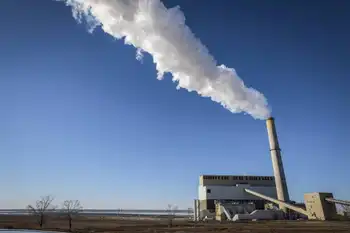Pickens keeps pushing for wind and natural gas
By Denton County News
Substation Relay Protection Training
Our customized live online or in‑person group training can be delivered to your staff at your location.

- Live Online
- 12 hours Instructor-led
- Group Training Available
Pickens is selling Democrats on subsidizing wind-powered electricity to displace natural gas and then subsidizing America's heavy truck fleets to switch from diesel to compressed natural gas.
"In 10 years, we'll put Mideast oil clear out of the picture," Pickens said.
This would certainly improve energy security, though at a cost to taxpayers of tens of billions of dollars.
But it would leave unchanged the wild price swings of oil and natural gas.
Eight months ago, both fuels were selling at historic highs divorced from supply and demand. Now the prices for both are in the cellar, leaving consumers confused and outraged.
Pickens made billions trading oil futures, acting as an oracle predicting higher prices and as the chief proponent of the theory that world crude oil production has peaked. When oil prices collapsed, investors pulled out and Pickens' oil trading fortunes turned.
Last summer's natural gas price spikes had no underlying theory of peak production. Instead, big gas producers such as Pickens and Chesapeake Energy Corp.'s Aubrey McClendon said the country was in a natural gas glut.
Even so, by July natural gas prices had doubled to almost $14 per million British thermal units. Electricity consumers in Texas and other states are still paying higher bills, even though gas prices have fallen to $4 per million Btu.
In a deregulated market like Texas', there's not much state regulators can do about this. Regulated states have also found themselves impotent, since their utilities say they simply passed along the dictates of the market.
It's up to the feds to stop speculators before they can hijack energy prices.
In the last eight years, two major gas market manipulators have crashed and burned after soaking consumers. The first was Houston's Enron Corp., where traders gleefully bled Californians.
The second was Amaranth Advisers LLC, a Connecticut hedge fund that bet heavily on spreads between natural gas futures contracts in 2005 and 2006 and in the process, federal regulators say, jacked up gas prices nationwide.
Last year, an awful lot of money fled stocks and real estate for commodity futures, including oil and natural gas. These investors were jumping from one bubble to another.
The federal watchdogs for these markets, the Commodity Futures Trading Commission and the Federal Energy Regulatory Commission, did not cry foul while prices spiked. Much of what was going on was beyond their reach, thanks to congressional exemptions.
Last month, the National Association of Regulatory Utility Commissioners approved a resolution urging the federal government to eliminate manipulation from natural gas markets.
Jay Rosser, a spokesman for Pickens' BP Capital, said that's all to the good.
"We completely support any actions that limit the impact of manipulation in the trading of any commodity," he e-mailed in response to questions.
Expanding the market for natural gas by substituting it for diesel in truck fleets would, he argued, bleed the volatility out of the gas market.
If this serves Pickens' own economic interests, he said, that is incidental to the goal of a true national energy policy.











